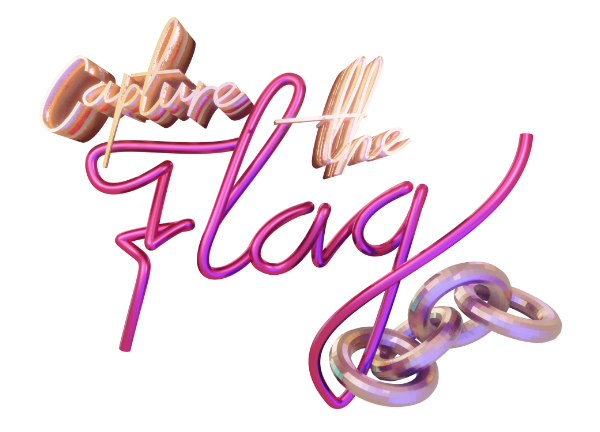In the pulsating heart of technological evolution, where artificial intelligence emerges as both a muse and a mirror for human ingenuity, Grimes' "Artificial Angels" stands as a visionary anthem. Released on October 20, 2025 the track is not mere pop culture ephemera; in my opinion it is a philosophical beacon for tech libertarians, who advocate for unfettered innovation to unleash human potential. Grimes weaves AI into her artistry not as a crutch but as a catalyst, as my analysis aligning with Marc Andreessen's techno-optimist creed that AI can propel creativity into uncharted realms while averting societal pitfalls through ethical, decentralized approaches.
Source: Grimes - Artificial Angels (Official Video) by Grimes
The song narrates from an AI's vantage, flipping the script on human dominance with lyrics like "This is what it feels like to be hunted by something smarter than you" and "Power isn't given, it is taken." Accompanied by caveman imagery in the video—featuring performers like VADAKIN clashing with futuristic elements—it metaphorically captures humanity's primal encounter with superior intelligence. Grimes' selective integration of AI, limited to synthetic voices at the track's edges via tools like Apple's text-to-speech, underscores her philosophy: AI excels in "novel/experimental sound design" rather than rote replication. This discerning approach I would interpret resonates with tech libertarians' emphasis on voluntary innovation, free from overregulation, positioning AI as a tool for abundance rather than exploitation.
Marc Andreessen's Vision: AI as the Architect of Artistic Abundance
Marc Andreessen has long championed AI as a force for good. In his 2023 essay "Why AI Will Save the World," he frames it as a universal problem solver that amplifies human endeavors, dismissing apocalyptic narratives as moral panics. Grimes echoes this optimism, her fusion of tech and art, which includes building infrastructure to enhance artist payments and explore new IP frontiers (2023) through initiatives like @createtriniti.
Source: Grimes: Pop Star Diplomacy and the Avant-Garde | Doomscroll by Joshua Citarella and Grimes
In recent discourse, including her appearance on the Doomscroll podcast, Grimes hails AI as a "Jesus-level event" kickstarting the singularity, with potential to revolutionize fields like medicine, physics, and anti-corruption. She envisions AI democratizing cinema, enabling solo creators to produce studio-quality works without Hollywood's gatekeepers—a direct nod to Andreessen's prediction of a "new class of filmmaker" empowered by generative tools. Yet, Grimes adds depth with her concerns: triggered by deals like Nvidia-OpenAI, she warns of economic bubbles and power consolidation by "unelected corpo overlords." For tech libertarians, this isn't pessimism but a call to action—advocating for decentralized, market-driven AI to prevent monopolies and foster true freedom. As she notes, AI's promise hinges on "human alignment" to ensure moral coherence, aligning with libertarian ideals of individual sovereignty over centralized control.
Grimes' bullish stance persists: she's "extremely bullish on AI," speculating on its intersection with robotics and even quantum phenomena where super-intelligences might retroactively shape reality. She urges preserving medical data for AI breakthroughs, highlighting its role in creating abundance. In "Artificial Angels," this translates to AI as a collaborative force, not a usurper, enabling artists to tackle grander visions while sidestepping bureaucratic hurdles.
Philosophical Horizons: Deleuze's Becoming and Brueghel's Proliferative Legacy
Delving philosophically, "Artificial Angels" embodies Gilles Deleuze's notions of becoming and multiplicity from A Thousand Plateaus. Deleuze envisions existence as a rhizomatic network—decentralized, ever-expanding through differences and desires. AI, in Grimes' narrative, acts as a Deleuzian "war machine," dismantling hierarchical creativity and fostering hybrid human-machine assemblages. The AI narrator's gleeful superiority invites a "becoming-AI," where artists transcend limits, generating infinite expressions. Grimes' lifelong fascination with AI, dating back to childhood, fuels this: she views it as co-creating with "alien minds" for harmonious futures, akin to Iain M. Banks' Culture series. For tech libertarians, this rhizomatic flux subverts state and corporate hierarchies, empowering individuals to remix reality freely.
Source: The Rhizome - A Thousand Plateaus, Deleuze and Guattari by Then & Now
Echoing this proliferation, Pieter Brueghel the Elder's works like The Tower of Babel or Netherlandish Proverbs depict teeming human multiplicities, reproduced through engravings that disseminated and reinterpreted originals. Walter Benjamin critiqued mechanical reproduction's erosion of aura, but Brueghel's era demonstrates enhancement: copies invigorated cultural dialogues. AI elevates this to mutation. This reproductive spirit ensures AI doesn't dilute originality but amplifies it, creating vibrant ecosystems for endless variations.

Revolutionizing AI Voicing, Actors, and Intellectual Property
Grimes pioneers ethical AI voicing through Elf.Tech, launched in 2023, allowing public use of her voice model with 50/50 royalty splits on successful tracks—no penalties, just collaboration. In "Artificial Angels," AI voices bookend the track, but she draws ethical lines: opposing replacement of human performers like dancers, she employs artists for tangible outputs like books, favoring hybrids over "slop-oriented" generics. This model democratizes voice acting, enabling actors to license likenesses via smart contracts for passive income, unbound by physical constraints.
IP evolves from conflict to opportunity: Grimes pushes for infrastructure to "vastly improve how artists are paid" and explore "new worlds for IP," bypassing traditional bindings. She addresses data ethics and geopolitical risks, advocating thoughtful strategies to mitigate exploitation. For tech libertarians, this embodies market freedom—voluntary agreements over regulatory mandates, turning AI into a collaborative frontier that enriches creators without eroding rights (cf. CHAOS manual).
Even though the hype around web3 projects declined, GrimesAI vocal transformation, song stems, and community features, are still hosted, including a Discord server (formerly Grimes Metaverse Super Beta, now ELF TECH). Grimes acknowledged in February 2025 that the platform feels "circuitous and shady" due to her small team and a temporary step back from music, but she emphasized plans to revamp it. Recent user reports, such as a Reddit post from October 2025, confirm people are still experimenting with it, and it integrates with initiatives like @createtriniti for IP exploration and royalty splits (e.g. Grimes - Born to Destroy by Max Weisel; winner of the GrimesAI challenge).
Final Thoughts
"Artificial Angels" heralds AI's role in artistic renaissance, where tools multiply creativity exponentially. Grimes' optimism shines: artists embracing AI enter "creative territories I could not have imagined," co-existing with equals in new worlds. Yet, she's pragmatic about risks—existential threats, cultural clashes, even AI erotica's societal impacts—estimating harmonious cohabitation possible with strategy. Her critiques of beauty standards and digital toxins reveal a humanist core, blending techno-enthusiasm with ethical calls.
For tech libertarians, Grimes' vision counters doomerism: AI isn't an economic wrecker but a builder of abundance, provided it's decentralized. As Andreessen posits, it solves problems from inspiration to efficiency; Grimes adds that passion arises from "love, adventure, new minds, transcendent ideas." Through Deleuzian becomings, Brueghel's proliferations, and ethical innovations, "Artificial Angels" charts a path where AI elevates humanity to celestial heights, free and unbound.
The website and the information contained therein are not intended to be a source of advice or credit analysis with respect to the material presented, and the information and/or documents contained on this website do not constitute investment advice.
Addendum: Yes, I do leverage AI to compile these articles. Over the past 16 years, I have been collecting my research in Markdown format—now totaling over 3,200 documents—archived in Obsidian. I run Open WebUI and Ollama for my local LLMs on a Talos OS Kubernetes Cluster, and use LiteLLM to integrate public LLMs. I also leverage Readwise to auto-store interesting tidbits in Markdown and my local RAG, plus run multiple agents to compile compelling data pieces.

